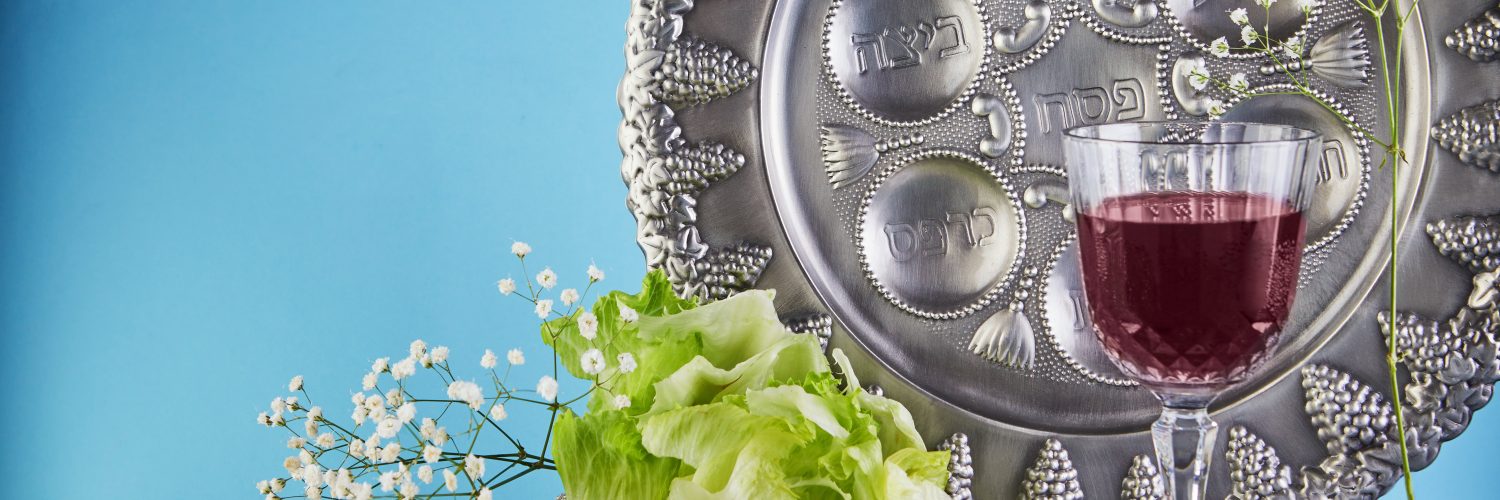Chapter 1 – Hakpada on Minhagim
Pesach is a time of abundant Mitzvos and Minhagim. Some of these customs were enacted to minimize the risk of eating Chametz, and others were established for different reasons. The Jewish people take great care in adhering to the stringencies on Pesach, more so than throughout the year. Therefore, one should not take these customs lightly and should follow his family traditions unless there is a compelling justification for leniency. This chapter will discuss situations that may prevent a person from adhering to his usual stringencies.
- The Ashkenazi custom is to eat only thin Matzos with a hard, crunchy texture. If a person suffers greatly from eating thin Matzos, he should nevertheless attempt to follow this custom and eat the smallest Shiur necessary. If he is unable to eat even this amount, he may eat thick Matzos following the Sephardi Minhag but he should first perform Hataras Nedarim.[1]
- Ashkenazim do not eat Matza Ashira (Matza kneaded with fruit juice) on Pesach. If a person is sick or elderly and needs to eat this Matza, he may do so.[2] However, there is a dispute as to which type of Matza Ashira may be eaten. One view only permits Matza kneaded with fruit juice, without any added water.[3] In addition, the Matza must be baked immediately following the formation of the dough.[4] The other view is that if only fruit juice was used the Matza need not be baked immediately; even if it rose it may be eaten by a sick or elderly person.[5] Likewise, according to this view, if fruit juice alone is not an option, one may mix in water though in that case the dough must not be permitted to rise.[6]
- Ashkenazim do not eat Kitniyos on Pesach.[7] However, if necessary, a Choleh may eat Kitniyos even if he is not a Choleh sheYesh bo Sakana.[8] It is preferable to first scald them in boiling water[9] and care should be taken to cook them in special utensils.[10] Some have the custom to designate special utensils for those who eat Kitniyos.[11]
- Medications containing Kitniyos may be taken by a Choleh who requires them if he is in significant pain and the sickness affects his entire body. They may not be taken for mild or non-systemic illness. However, if the Kitniyos (in the medication) has become Nifsal me’Achilas Kelev (unfit for a dog to eat)[12], they may be taken even by such a Choleh.[13]
- Regarding vitamin supplements and the like that contain Kitniyos, a Rav should be consulted.[14]
- A person who does not usually eat Gebrochts (Sheruya) on Pesach but must soak his Matza in water due to illness should perform Hataras Nedarim.[15] Some contend that Hataras Nedarim is unable to release him from this Minhag as it is a Minhag Avos.[16] However, the Poskim rule that he may perform Hataras Nedarim if he cannot eat a Kezayis of regular Matza on Seder night.[17]
- The aforementioned Minhagim are subject to various additional Minhagim and stringencies, some of which have a Halachic basis and others which have a basis in Minhag or distant concerns.
Some customs are considered to be a vow that would require Hataras Nedarim whereas others do not, whether due to the nature of the Minhag[18] or the physical needs of the sick or elderly person.[19] If a sick or elderly person cannot follow his customs he must consult with a Rav who is knowledgeable of these Halachos.
[1] Minchas Asher (Shu”t 3:45).
[2] Rema (462:4).
[3] Mishna Berura (ibid. 19). The Sha’ar haTziyun (ibid. 26) cites a Machlokes Achronim as to whether one may moisten the dough with a little water.
[4] Mishna Berura (ibid.). The Igros Moshe (O.C. 1:154, 4:98) prohibits the Matza if the dough was not prevented from rising, even for a sick or elderly person.
[5] Chazon Ish (O.C. 121:12 s.v. “u’b’Shulchan Aruch”).
[6] Chazon Ish (ibid.).
[7] Rema (O.C. 453:1).
[8] Mishna Berura (453:7).
[9] Mishna Berura (ibid. quoting the Chasam Sofer 122).
[10] Maharam Schick (Shu”t 241) and R’ Shmuel Wosner (Beis haLevi 1 page 44), permit cooking Kitniyos (for those who may eat them) on the same stove used for regular Pesach cooking. If the food spills onto the stove it is sufficient to clean it.
[11] Chut Shani (Pesach, p161).
[12] Such as when the medication is in tablet or pill form.
[13] Ashrei haIsh (O.C. 3:59:9). This is also cited by the Yashiv Yitzchak (Shu”t 47:31) in the name of R’ Elyashiv and R’ Shmuel Wosner.
[14] Sha’arei Yemei haPesach (5:1), Ma’adanei Yom Tov (5:65).
[15] Some authorities contend that the Hataras Nedarim performed on Erev Rosh Hashana is effective for this. See Ashrei haIsh (Y.D. 1:36:26) in the name of R’ Elyashiv and the Yalkut Yosef (Pesach 2, page 196) in the name of R’ Ovadia Yosef.
See Orchos Rabbenu (2, page 59), Halichos Shlomo (Pesach 4:19), and Ashrei haIsh (ibid.) quoting R’ Elyashiv.
[16] Igros Moshe (O.C. 3:64), Chut Shani (Pesach, page 161). See R’ Yitzchak Mordechai Rubin Shlit”a’s comments in Kovetz “Heichala” 6, page 131 for elaboration.
[17] Chut Shani (ibid.)
[18] See the Pri Chadash (496, Hilchos Minhagei Issur, end of 1) who does not require Hatara for a “Milsa Yesirasa” (an extra stringency). Accordingly, the Sh’oel v’Nishal (Shu”t 5:62) rules that a person who had the custom to only eat food on Pesach that was prepared in his own home and subsequently needs to eat in his children’s home, does not require Hatara.
[19] See the Chayei Adam (127:6) who permits forgoing a Minhag in a case of dire need or even for a Choleh sheEin bo Sakana if it is a great necessity.











